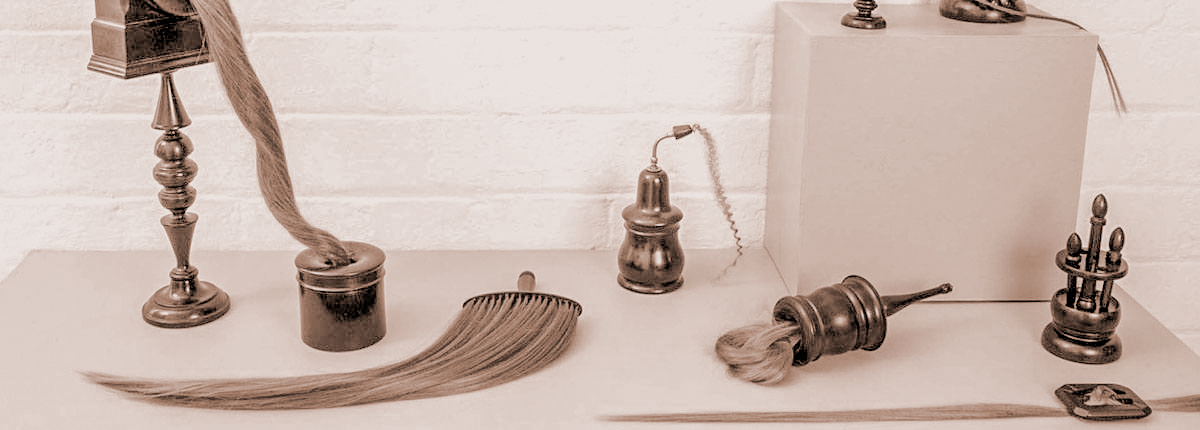Recycling Possibilities
Hair has remarkable characteristics. It is fine, strong, flexible, porous and long lasting. As such it has been put to a wide variety of uses. It is also a renewable resource that grows back, once cut. Every year the UK throws away about 6.5 million kilos of hair which enters the waste stream. How might we make better use of this natural fibre? History provides some interesting examples of possible uses whilst the experiments of designers and entrepreneurs point to new possibilities. Many of their ideas echo practices that have long existed in India, China and other Asian countries.
How might we make better use of this natural resource?
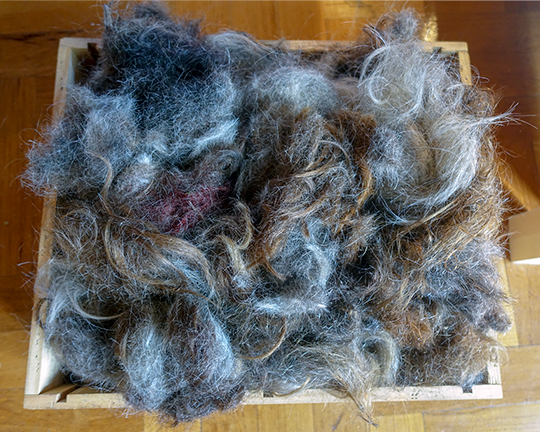
Hair collected from salon floor, London
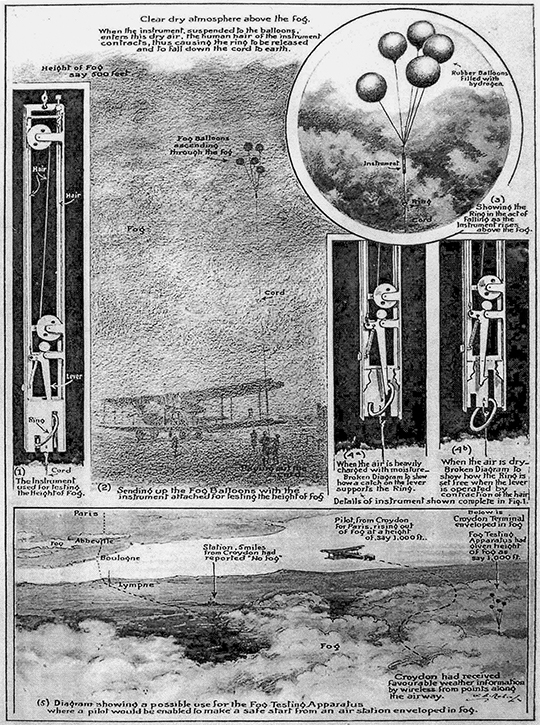
Machine for testing fog using human hair. Croydon 1922
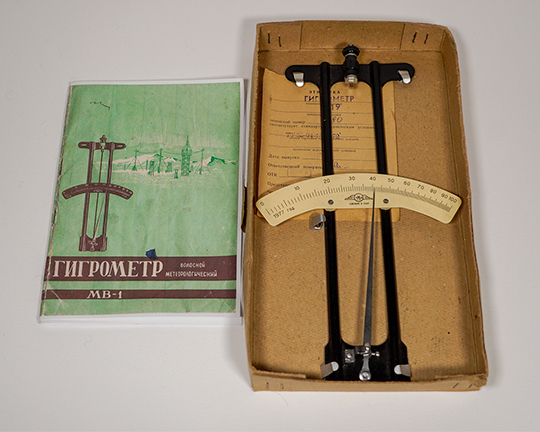
Russian hygrometer utilising human hair
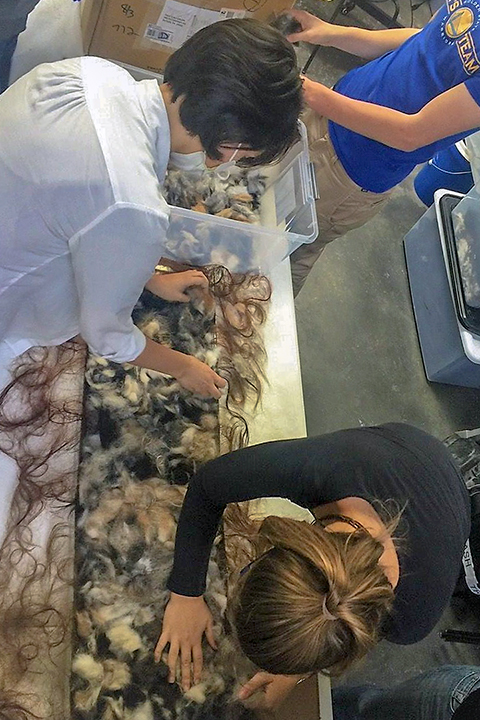
Making drainage mats at Matters of Trust.
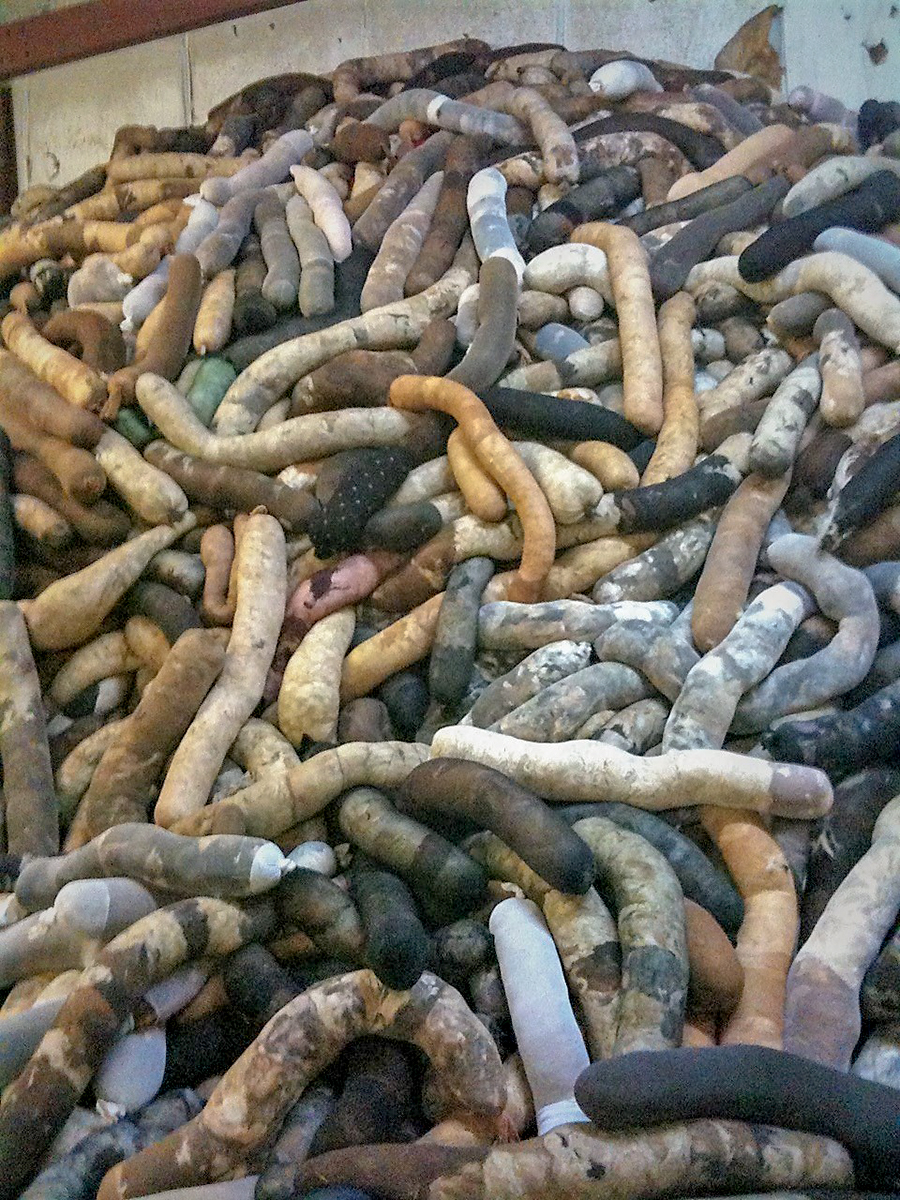
Booms for soaking up oil spills made at Matters of Trust.
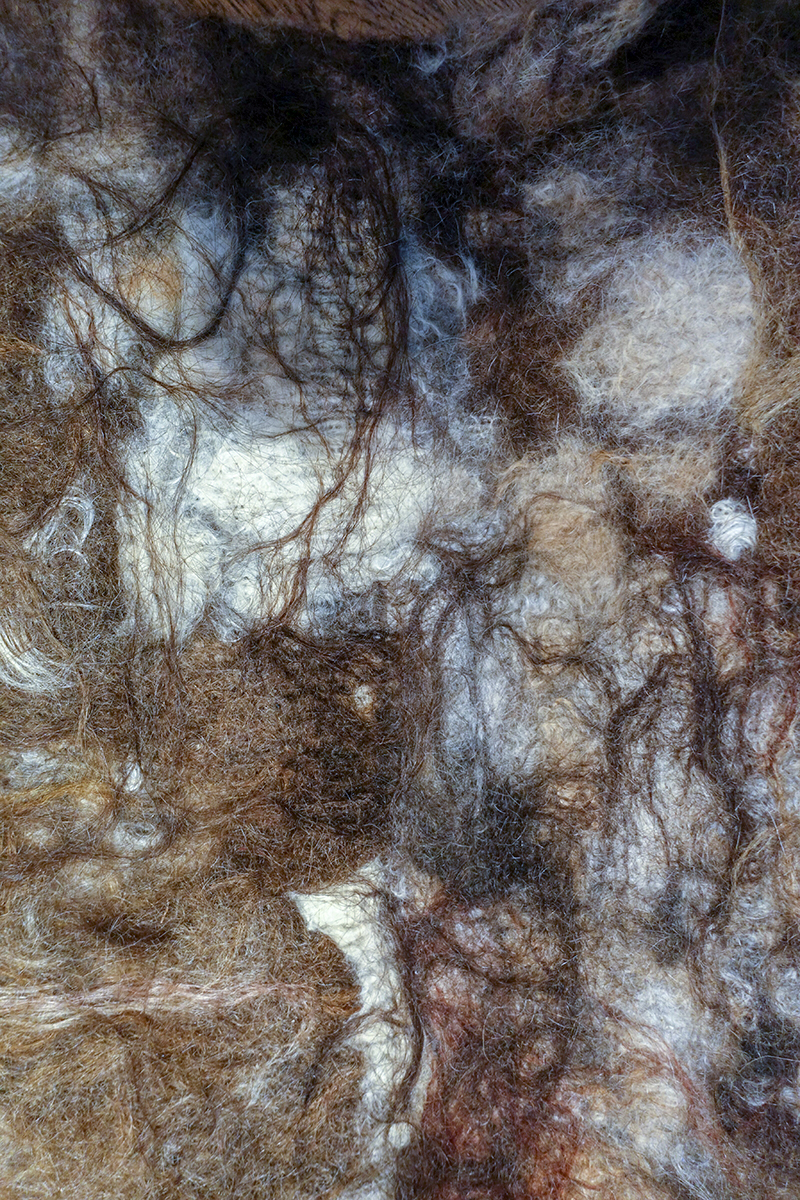
Detail of drainage mat made with human hair and animal fur.
The New Age of Trichology by Sanne Visser
On average, one human hair can hold up to 100 grams of weight, depending on the person’s diet, health, environment, ethnic background and treatment of hair. So, potentially a whole head of hair could withstand a weight of 12 tonnes. This project explores the pure potential of hair as a raw material, reducing waste, environmental problems and the pressure on other non-renewable materials. The project consists of a range of utilitarian objects and tools that helps create a system all the way from collection through to the end application. The New Age of Trichology focused on the tensile strength of human hair fibre and applied spinning and rope-making techniques. The system is a closed loop system in that the raw material collected remains free of additives and can go straight back into nature at the end of its life cycle, through composting or recycling.
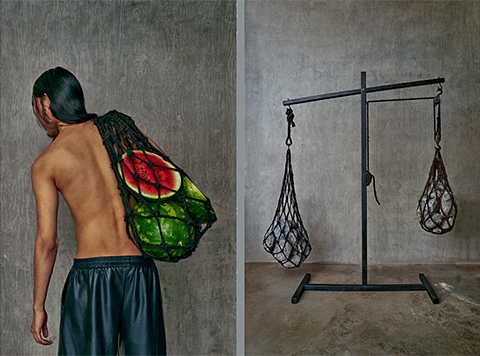
Sanne Visser, recycled hair "string bag" and balance.
The balance shows how Asian hair waste collected from Chinese salons can withstand more weight than Caucasian hair waste.
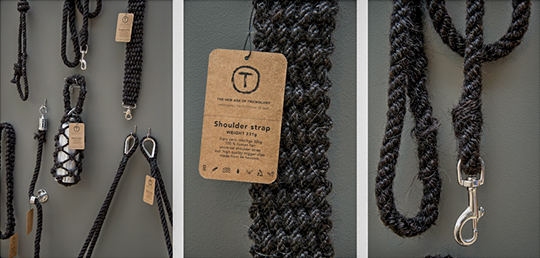
Utilitarian Products made of 100% recycled human hair by Sanne Visser
Hair Matters by Alix Bizet
Alix Bizet’s work addresses the fact that although hair grows in a rich diversity of textures and colours, our idea of hair has been steadily standardized over the years by the beauty products industry, media, and social conventions, making it increasingly uniform.
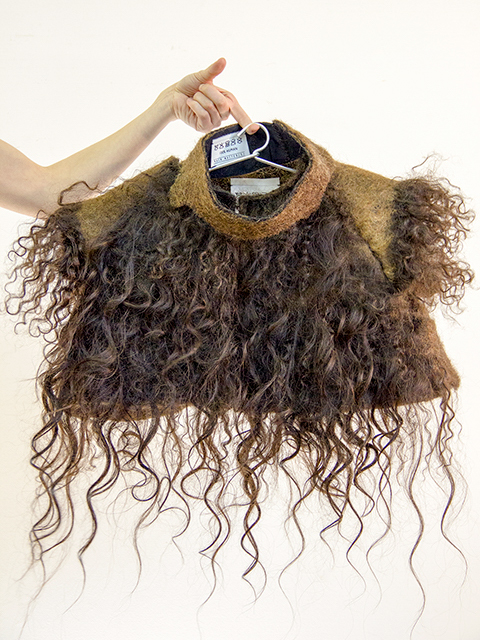
Alix Bizet, Hair Matters, human hair
You can say we are living in a time of crisis in which intolerance and prejudices can begin with judgment of one’s hair’s natural qualities or style. This project offers hair as a medium for talking about diversity and how it is essential to address the subject of democracy and the equality of all hair types in society.
— Alex Bizet
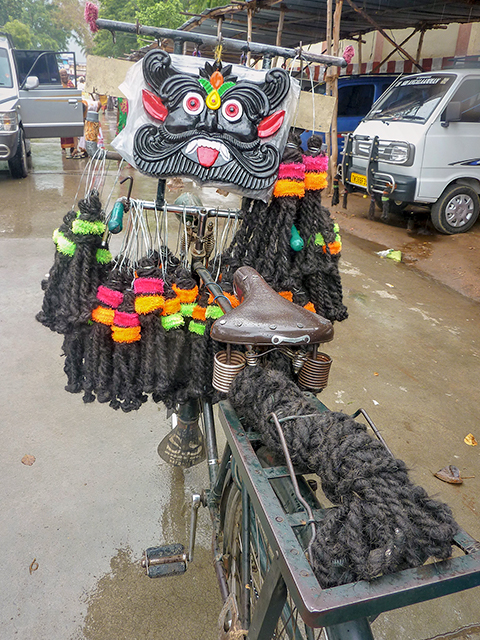
Street collector's bicycle
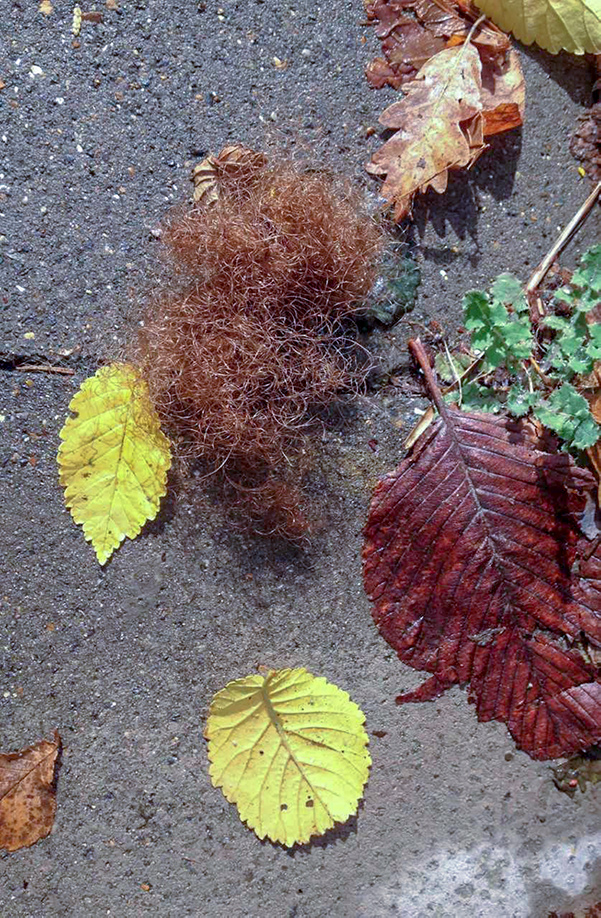
Sarah Cheang Metamorphoses, 2018
Hair has a natural life cycle. Each strand on the human head grows for around seven years. At the end of this time, each hair is shed and the follicle begins again. Or, we may choose to cut it short, before its time.
But hair is life after death. Its movements around the city, freed from the body, defies an ending. Under foot, beneath the radar, beside consciousness, hair roams the pavements, taking new forms, pupating, dreaming of the next life. Hair is finding a new existence - come follow.
— Sarah Cheang
